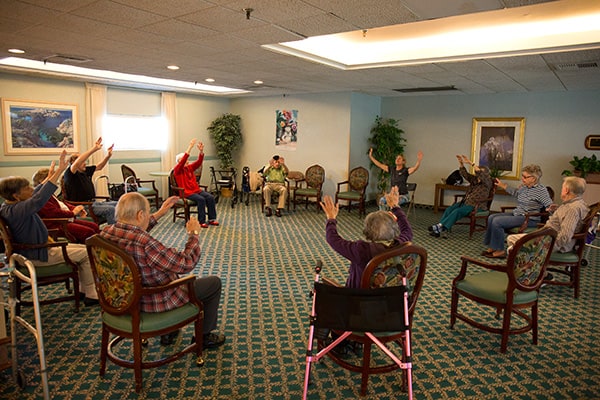

Recently awarded the title of Top San Diego Assisted Living Community by the San Diego Union-Tribune, The Villa on Bankers Hill is a lovely assisted living and memory care community located just two blocks from Balboa Park. We offer a variety of services, including diabetic care, medication management, and assistance with personal care. Families enjoy our home-like setting, featuring private apartments, 24-hour nursing, and a secure memory care area.

Nestled within walking distance of the iconic Balboa Park, our assisted living facility offers a serene environment for those in need of memory care. The close proximity allows residents to enjoy regular outings and picnics in one of San Diego's most beautiful and culturally rich landmarks. With easy access to the park’s gardens, museums, and recreational areas, our community provides an exceptional blend of cultural stimulation and natural beauty, contributing positively to the mental well-being and quality of life for our residents.
Our facility is dedicated to providing comprehensive memory care tailored to each individual’s needs. We employ cutting-edge programs designed to slow the progression of memory-related conditions and enhance cognitive function. Our skilled staff is trained in therapeutic activities that stimulate the mind and support memory retention. From music therapy sessions that reignite cherished memories to art projects that promote self-expression and motor skills, we offer a range of activities aimed at preserving identity and personal history.
Understanding the importance of familiarity and comfort in memory care, our living spaces are designed with a home-like atmosphere in mind. Rooms can be personalized with favorite items from home, ensuring each resident feels safe and secure in their environment. The facility boasts common areas that encourage social interaction while also offering quiet nooks for contemplation or private family visits. Comfort extends beyond physical spaces; our staff fosters a warm community where everyone is treated with dignity, respect, and kindness.
Healthcare at our assisted living facility near Balboa Park goes beyond traditional approaches. We integrate physical wellness into daily routines through gentle exercise classes tailored for varying mobility levels which help maintain physical strength and flexibility. Nutritious meals prepared by culinary experts cater both to dietary requirements as well as personal tastes, ensuring residents receive balanced diets that support overall health. On-site medical professionals regularly assess resident health status while promptly addressing any concerns that arise—ensuring peace of mind for families entrusting us with their loved ones’ care.
| Facility Name | Description |
|---|---|
| Belmont Village Memory Care | Specializes in memory care with innovative programming and compassionate staff. |
| Spring Hills Memory Care | Offers engaging activities and support for residents with memory impairments. |
| Artis Senior Living | A memory care community focused on meaningful interactions and support. |
| Elmcroft Memory Care | Provides a safe environment for residents with Alzheimer’s and other dementia-related conditions. |
| Riverwalk Memory Care | Offers personalized care and support for those with memory-related challenges. |